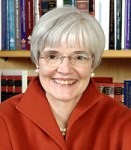Dispute Resolution: Negotiation, Mediation, Arbitration, and Other Processes, Seventh Edition
Dispute Resolution: Negotiation, Mediation, Arbitration, and Other Processes, Seventh Edition
Buy a new version of this textbook and receive access to the Connected eBook on Casebook Connect, including lifetime access to the online ebook with highlight, annotation, and search capabilities. Access also includes an outline tool and other helpful resources. Connected eBooks provide what you need most to be successful in your law school classes.
Dispute Resolution: Negotiation, Mediation, Arbitration, and Other Processes, Seventh Edition Provides overviews, critical examinations, and analyses of the application of ADR’s three main processes for settling legal disputes without litigation— negotiation, mediation, and arbitration—and issues raised as these processes are combined, modified, and applied. This casebook challenges students to develop new processes and applications and provides them tools to master the legal issues facing lawyers who utilize the major dispute resolution processes. this book also assists students in building the skills a modern lawyer needs to represent clients in these critical processes.
New to the Seventh Edition:
- New materials and exercises on legislative negotiation and causes and suggestions for remedying Congressional gridlock in negotiating legislative solutions to national problems. (First treatment of this issue in any law school negotiation/dispute resolution teaching book.)
- Negotiation simulations in which students play the roles of members of Congress and state legislators.
- Additional treatment of developing online dispute resolution processes.
- Expansion of dispute systems design materials to include community disputes.
- New materials designed to help students understand the mediation privilege, including a “debate” about the policy choices implicit in it and more depth on both the Uniform Mediation Act and the California mediation privilege experiences.
- Addition of multiple new Supreme Court arbitration cases, including American Express Company. v. Italian Colors Restaurant, Oxford Health Plans LLC v. Sutter, and Epic Systems, Inc. v. Lewis, addressing the continuing viability of the vindication of rights doctrine in arbitration, judicial review of an arbitrator’s decision to order a class action arbitration, and whether the NLRA should be interpreted to preclude employers from using class action waivers in agreements with their employees.
- Additional discussion of 2018-19 Supreme Court arbitration cases, including New Prime, Inc. v. Oliveira and Lamps Plus Inc. v. Varela.
- Consideration of the #Metoo movement and its impact on arbitration agreements and confidentiality in dispute resolution processes.
- Discussion of state and federal legislation addressing the use of arbitration for sexual harassment claims, including federal legislation like the End Forced Arbitration of Sexual Harassment Act bill.
- Substantial reorganization of the chapters on mediation, arbitration, and their variants, so that when students arrive at the new Chapter 8, Representing a Client in ADR (formerly Representing a Client in Mediation), the student is capable, as the modern lawyer should be, of representing a client in all ADR processes. The new emphasis is on facing the future. In addition to learning about ADR responses to existing matters, the student is challenged to put that learning to use in applying current ADR procedures to newly-developing issues, and in developing new processes when existing ones do not meet the client’s needs.
Professors and students will benefit from:
- Thorough, systematic coverage, moving from overviews to critical analysis, application, evaluation, and practice
- A distinguished and experienced author team
- A direct and accessible writing style
- A wealth of simulations (both classic and new) and questions throughout
- Simulations allow students to evaluate, prepare for, and practice the various dispute resolution techniques
- Strong coverage of mediation
Product Information
Dispute Resolution: Negotiation, Mediation, Arbitration, and Other Processes, Seventh Edition
Connected eBook + Hardcover
Dispute Resolution: Negotiation, Mediation, Arbitration, and Other Processes, Seventh Edition
LLPOD
Dispute Resolution: Negotiation, Mediation, Arbitration, and Other Processes, Seventh Edition
Connected eBook with Study Center (Digital Only)



